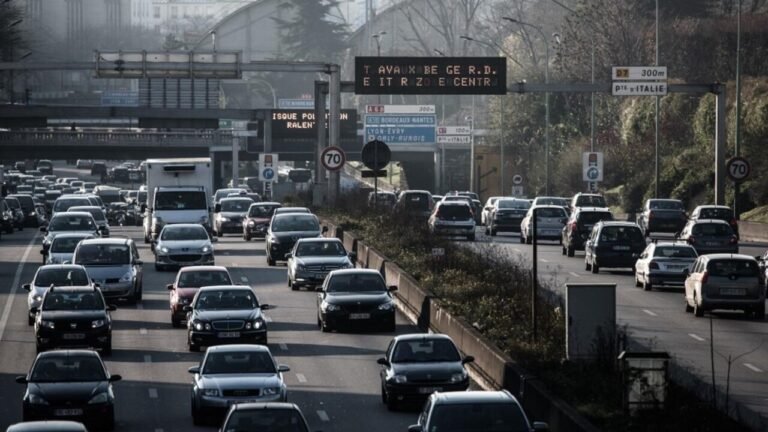The European Parliament voted on Tuesday to approve a ban on new sales of carbon-emitting gasoline and diesel cars by 2035, with the aim of keeping them off the continent’s roads by mid-century.
Issued on: 02/14/2023 – 16:32
2 minutes
EU member states have already approved this legislation, and will now formally turn it into law, despite opposition from Conservative MEPs, the largest group in Parliament.
The law was approved by the Strasbourg Parliament by a majority of 340 votes to 279 votes, with 21 members abstaining from voting.
Supporters of the bill argued that it would give European automakers a clear timeframe to shift production to zero-emission electric cars.
This in turn will support the EU’s plan to become a “climate neutral” economy by 2050, with net greenhouse gas emissions to zero.
Cars currently represent about 15% of total carbon dioxide emissions in the European Union, while transportation in general represents about a quarter.
China’s efforts
EU Vice President Frans Timmermans warned members of the European Parliament, saying: “Let me remind you that between last year and the end of this year, China will introduce 80 models of electric cars to the international market.”
China – the world’s largest car market – wants at least half of new cars to be electric, hybrid or hydrogen-powered by 2035.
“These are good cars. These cars are going to be more and more affordable, and we need to compete with that. We don’t want to give up this essential industry to outsiders.”
But opponents say the industry is not prepared for such a significant reduction in the production of internal combustion engine vehicles, and that hundreds of thousands of jobs are at risk.
“Our proposal is to let the market decide which technology is best for us to achieve our goals,” said MEP Jens Gieseke, a member of the centre-right European People’s Party.
Arguments made by Green and Socialist MEPs that electric cars are cheaper to run have become “null and void” due to the crisis of rising energy costs, Žižecki declared.
“In Germany 600,000 people work in ICE production, and these jobs are at risk,” he declared, urging the European Commission to rethink plans to extend the ban to trucks and buses as well.
Opponents also say car batteries are produced abroad by Europe’s competitors such as the United States, but Timmermans said that thanks to EU-backed investment, European production would increase.
Trucks and buses
Currently, around 12% of new cars sold in the EU are electric, with consumers shifting away from CO2-emitting models due to energy costs and greener traffic systems.
The European Commission on Tuesday unveiled plans to replace urban buses in the European Union with zero-emission vehicles by 2030 and cut carbon emissions from new trucks sold from 2040 by 90 percent.
Manufacturers can choose their own technology to achieve this, citing electric motors, hydrogen engines and hydrogen fuel cells.
(With AFP)





